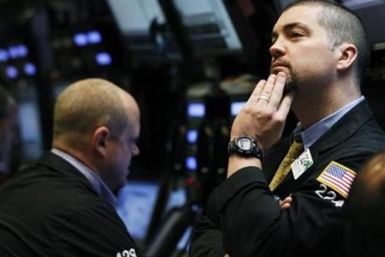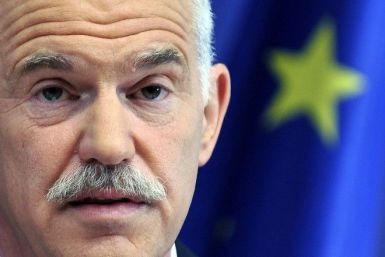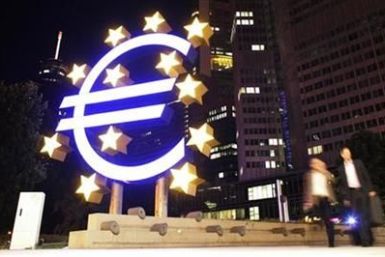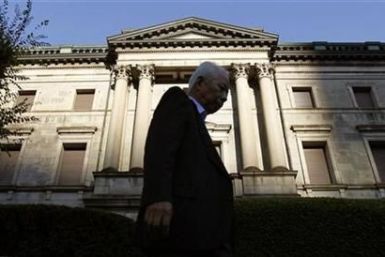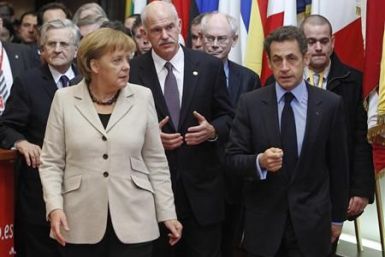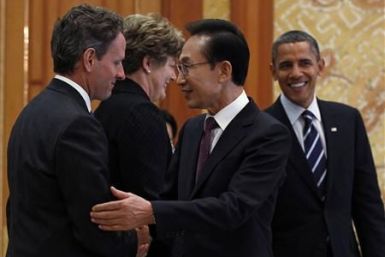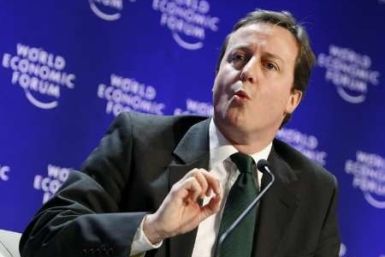U.S. stocks are sliding on fears over inflation in Asia and the growing likelihood that Ireland’s battered economy may need a cash bailout from the European Union (EU).
The European Union (EU) cannot survive if it fails to solve the debt crisis plaguing the continent, warned EU president Herman Van Rompuy.
Annual inflation in the European Union rose during October, for both the euro area and the EU, according to a report by the Eurostat, the statistical office of the European Union
Europe's sovereign debt crisis is flaring up again and Ireland, the center of focus this time around, is pushed closer to needing a bailout.
Debt-stricken Greece announced on Monday its budget deficit will contract to 9.4 percent of the GDP this year and said the country has been able to manage a much greater pruning of its deficit than initially calculated, immediately after the European Union Statistical agency revised upwards the country's 2009 deficit to 15. 4 percent.
The euroarea reported a trade surplus for the month of September, according to a report by Eurostat, the statistical office of the European Union.
US dollar strengthened across the board on Monday on expectations of good data signaling recovery, but investors are also cautious that any negative surprise could trigger market worries about more bond buyback by the Fed, sparking off the quantitative easing (QE3) talks.
On Friday at the G20 summit, finance ministers of France, Germany, Italy, Spain, and Britain issued a joint statement saying the holders of any existing euro zone government debt are safe from regulatory changes that would force them to take on additional losses.
Japan will start free trade talks with the European Union next spring, alarmed by the head start made by its main manufacturing rival in Asia, South Korea, which signed a pact with the European bloc last month.
Eurozone industrial output unexpectedly fell in September as the demand for durable goods plunged.
Ireland's grip on the slippery debt-mired track is giving way fast as bond yields widened to a level with Greece’s before Athens went broke and was bailed out, fueling speculation that the country could be soon looking for international financial assistance.
German gross domestic product (GDP) growth slowed to 0.7 percent in the third quarter after increasing sharply by a revised 2.3 percent in the second quarter.
Aid to developing nations is not a major issue at the G-20 Summit, but at least one NGO says it should be.
The global currency war will likely dominate discussions at the G20 Seoul summit. Other issues on the agenda include global financial regulation, development gaps, and dealing with disruptive capital inflow and outflows.
The U.S.-South Korea free trade talks broke down as the two sides failed to resolve principal differences over U.S. beef and auto exports to South Korean markets, but Presidents Barack Obama and Lee Myung-bak said they still hoped the deal could be clinched.
G20 leaders say they want nations to coordinate economic policy, but even the host country is looking out for number one.
In a wide-ranging and rambling speech during a luncheon at the G20 Business summit in Seoul, Korea, Germany’s chancellor Angela Merkel called for a “sensible” exit strategy from the global credit crisis.
Britain’s Prime Minister David Cameron and South Korean President Lee Myung-bak agreed to increase trade and investment between the two countries in a meeting prior to Thursday’s opening of the G-20 summit in Seoul.
Goods and services trade deficit in the U.S. narrowed in the month of September from the previous month, but still remained high with China, according to a report released by the U.S. Commerce Department.
Foreign Direct Investment (FDI) in China spiked up for 13th straight month in August, despite complaints from the US and European companies over alleged unfair business environment and the Chinese government's favors for domestic firms.
The European Central Bank extended its liquidity safety net for vulnerable euro zone banks into next year, delaying its exit from crisis measures for now as it urged caution about the economic recovery.
The euro edged up on Thursday supported by healthy results at Spanish and French bond auctions and stable global equities, but investors remained cautious ahead of a key reading on the U.S. labor market on Friday.









